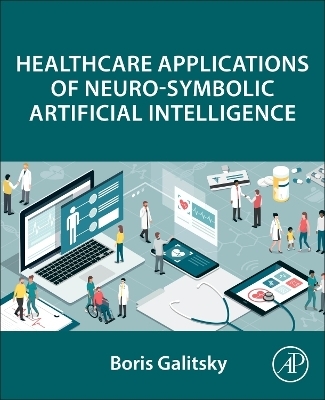
Healthcare Applications of Neuro-Symbolic Artificial Intelligence
Academic Press Inc (Verlag)
9780443300462 (ISBN)
This book will be a welcome resource for researchers and graduate students in AI, natural language processing, and biomedical informatics, as well as professionals in software development looking to redesign current systems to leverage LLMs through the health application of NS architecture.
Dr. Boris Galitsky is a cofounder of Knowledge Trail, San Jose, CA. He has contributed linguistic and machine learning technologies to Silicon Valley start-ups as well as companies such as eBay and Oracle for over 25 years. His information extraction and sentiment analysis techniques assisted several acquisitions, such as Xoopit by Yahoo, Uptake by Groupon, LogLogic by Tibco, and Zvents by eBay. His security-related technologies of document analysis contributed to the acquisition of Elastica by Symantec. As an architect of the Intelligent Bots project at Oracle, he developed a discourse analysis technique used for dialogue management and published in the book Developing Enterprise Chatbots. He also published a two-volume monograph “AI for CRM, based on his experience developing Oracle Digital Assistant. He is an Apache committer to OpenNLP where he created OpenNLP. Similarity component that is a basis for a semantically enriched search engine and chatbot development. Dr. Galitsky’s exploration and formalization of human reasoning culminated in the book Computational Autism broadly used by parents of children with autism and rehabilitation personnel. His focus on the medical domain led to another research monograph, Artificial Intelligence for Healthcare Applications and Management, co-authored with Dr. Saveli Goldberg.
1. Neuro-Symbolic Shaped-Charge Learning Architecture
2. Health Applications of Shaped-Charge Learning
3. Enabling LLM with plug-and-play symbolic reasoning components
4. Extending LLM capabilities beyond reasoning (Boris Galitsky and Alexander Rybalov)
5. Differential Diagnose-making with LLM and Probabilistic Logic Program
6. LLM-based Personalized Recommendations in Health
7. Leveraging Medical Discourse to Answer Complex Questions
8. Identifying LLM Hallucinations in Health Communication
9. Enabling LLMs with explainability
10. Explainability Discourse
11. Enabling Retrieval-Augmented Generation and Knowledge Graphs with Discourse Analysis
12. Employing LLM to solve Constraint Satisfaction
13. Kolmogorov-Arnold Network for Word-Level Explainable Meaning Representation
14. Conclusions
| Erscheinungsdatum | 23.08.2025 |
|---|---|
| Verlagsort | San Diego |
| Sprache | englisch |
| Maße | 191 x 235 mm |
| Gewicht | 450 g |
| Themenwelt | Geisteswissenschaften ► Sprach- / Literaturwissenschaft ► Sprachwissenschaft |
| Informatik ► Theorie / Studium ► Künstliche Intelligenz / Robotik | |
| Informatik ► Weitere Themen ► Bioinformatik | |
| Naturwissenschaften ► Biologie | |
| ISBN-13 | 9780443300462 / 9780443300462 |
| Zustand | Neuware |
| Informationen gemäß Produktsicherheitsverordnung (GPSR) | |
| Haben Sie eine Frage zum Produkt? |
aus dem Bereich


